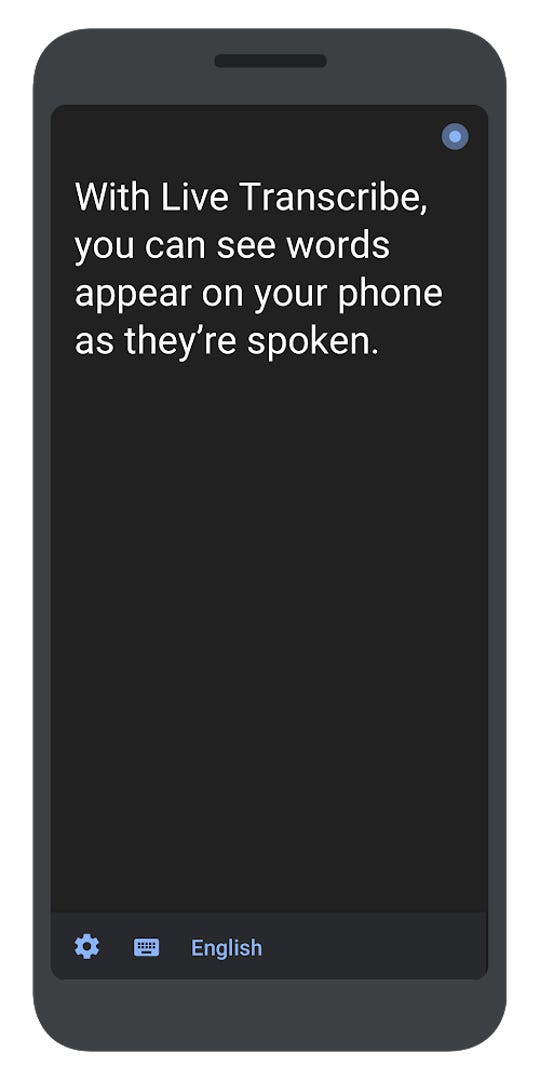Google Live Transcribe and Sound Amplifier to help deaf and hard-of-hearing community


Google has announced two new apps for Android, Live Transcribe and Sound Amplifier, which it said are designed to help the deaf and hard-of-hearing community.
Live Transcribe, like its namesake, uses a phone's microphone to automatically transcribe real-world speech into captions in real-time.
The app is available in over 70 languages and dialects. It enables two-way conversation via a type-back keyboard for users who can't or don't want to speak, and can switch between two languages at a time.
External microphones can also be used for the app to improve the accuracy of transcriptions, Google said on Monday.
Google partnered with Gallaudet University, a university for deaf and hard-of-hearing people based in Washington, to develop Live Transcribe. The university helped design and provide feedback on Live Transcribe so that it met the needs of these communities.
Read more: ACCAN launches Australia's first disability-friendly guide to telco products
With Sound Amplifier -- which was first announced at last year's Google's I/O developer conference -- the app uses a phone and a set of headphones to filter, augment, and amplify sounds so that users can better hear conversations or announcements in noise-heavy environments.
The app is not designed to replace actual hearing aids or other devices, Android Accessibility program manager Brian Kemler said at the time, but could be used in instances where someone forgets their aid or it is not readily accessible.
"[Sound Amplifier] works by increasing quiet sounds, while not over-boosting loud sounds. You can customize sound enhancement settings and apply noise reduction to minimize distracting background noise with simple sliders and toggles," Google said.
Hearing loss is a worldwide problem that affects over 466 million people, which is more than 5 percent of the world's population, according to the World Health Organisation. The UN organisation also said that 60 percent of childhood hearing loss arises due to preventable causes.
Both apps will be available pre-installed on Pixel 3 phones under Accessibility Settings and are available via the Google Play Store for other Android devices. However, Live Transcribe is currently being rolled out only to limited beta users, and Sound Amplifier can only be used on devices that have Android Pie or later software installed.
"With both Live Transcribe and Sound Amplifier, our goal is to help the hundreds of millions of people who are deaf or hard of hearing communicate more clearly," Google said.
Google is not the only one focusing on improving language processing, with Microsoft in May demoing a live transcription tool at its Build conference. The transcription tool can handle dereverberation, speech separation, and automatic speech recognition, Microsoft researchers said at the time.
Related Coverage
Google brings real-time closed captioning to Slides
The feature will make presentations more accessible to audiences that are deaf or hard of hearing.
Google Cloud rolls out new tools to make AI more accessible
The new AI Hub and Kubeflow Pipelines are designed to take a data scientist's work and maximize its impact across a business
ACCAN launches Australia's first disability-friendly guide to telco products (TechRepublic)
Australia finally has a telecommunications products resource dedicated to people with disability.
Despite its promise, modern technology often fails to help disabled users (TechRepublic)
At the Berkman Klein Center for Internet and Society at Harvard, professors Meryl Alper and Elizabeth Ellcessor explored how 'accessible' digital media really is for people with disabilities.